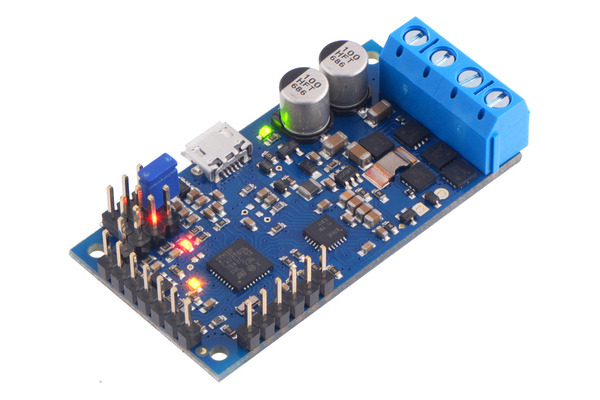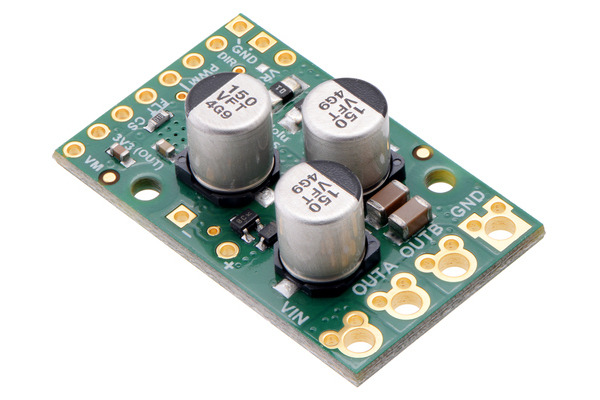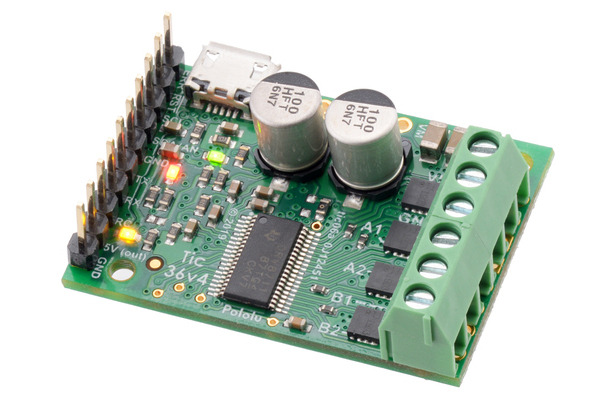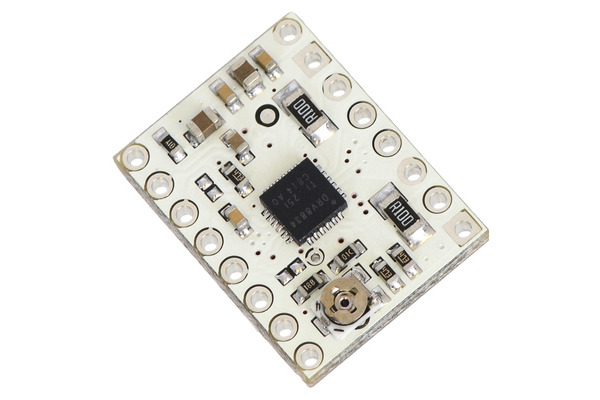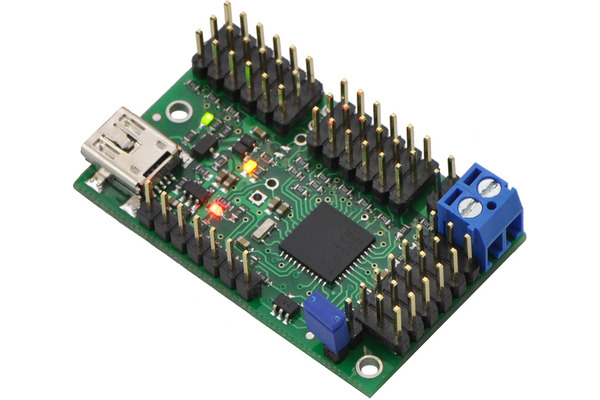Electronics »
Motion Control Modules
Our motion controllers come in five basic categories:
- Brushed DC motor drivers are the simplest modules in the sense that all they do is provide power amplification for low-level control signals (e.g. PWM and direction) supplied by the user; on the other hand, that means that the master device to which the motor driver is connected must take care of the low-level, resource-consuming signal generation.
- Brushed DC motor controllers are DC motor drivers with additional intelligence: an on-board microcontroller generates the low-level signals and presents the user with higher-level interfaces such as I²C or USB. These modules generally offer advanced commands and configurable parameters, including acceleration control, current sensing, feedback-based control, and more.
- Stepper motor drivers are specifically designed to drive stepper motors, which are capable of continuous rotation with precise position control, even without a feedback system. Our stepper motor drivers offer adjustable current control and multiple step resolutions, and they feature built-in translators that allow a stepper motor to be controlled with simple step and direction inputs.
- Tic Stepper Motor Controllers are stepper motor drivers with additional intelligence: an on-board microcontroller generates the low-level signals and presents the user with higher-level interfaces and commands, such as USB for direct connection to a computer, TTL serial and I²C for use with a microcontroller, RC hobby servo pulses for use in an RC system, analog voltages for use with a potentiometer or analog joystick, and quadrature encoder for use with a rotary encoder dial. The Tics also offer a wide array of settings that can be configured over USB through a free software utility.
- RC servo controllers are quite different from the other two kinds of modules since they are made specifically for radio control (RC) hobby servos, which have built-in power circuitry. RC servos are popular because they are low-cost packages that include a motor, gearbox, and control circuitry with feedback, and they are often a compelling choice for projects that include many degrees of freedom, such as robot arms and walking robots. RC servo controllers are interfaces between a primary controller (such as a computer or microcontroller) and the many servos, which can become a burden for the primary controller to control directly. Features to look for in a servo controller include how many servos it can control, the resolution and range it can support (our servo controllers support 5000 positions over a range that exceeds what any servo can achieve mechanically), and extra control options such as speed control (sometimes referred to as ramping) and the ability to disable servos that are not in use.
 Compare all products in this category
Compare all products in this category
Subcategories
Take command of the speed and direction of your brushed DC motors using these controllers. This category includes single and dual serial motor controllers with a variety of features such as analog, RC, or USB control, speed/position feedback, channel mixing, and more.
Single and dual motor driver carriers get your brushed DC motor projects up and running quickly using modern H-bridges with high-performance MOSFETs that deliver hundreds of watts in a compact package. Give these boards a PWM signal and make your motors go!
The Tic offers simple control of bipolar stepper motors directly from a variety of interfaces, including USB, TTL serial, I²C, hobby radio control (RC), analog voltage (potentiometer), and quadrature encoder signals.
With features like adjustable current limiting and selectable microstep resolutions, these drivers make it easy to get a stepper motor running with simple step and direction control interfaces.
Pololu’s Maestro servo controllers offer industry-leading resolution and stability for precise, jitter-free control of your RC servos. Features include a native USB interface, separate speed and acceleration settings for each servo, internal scripting control, and channels configurable as general purpose I/O.
